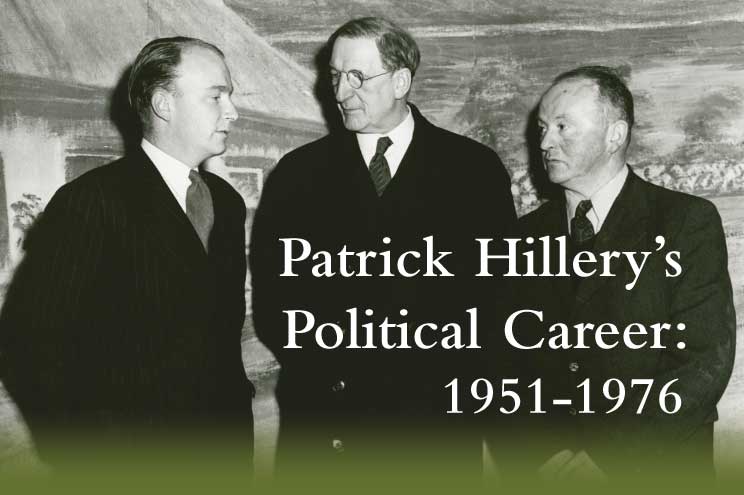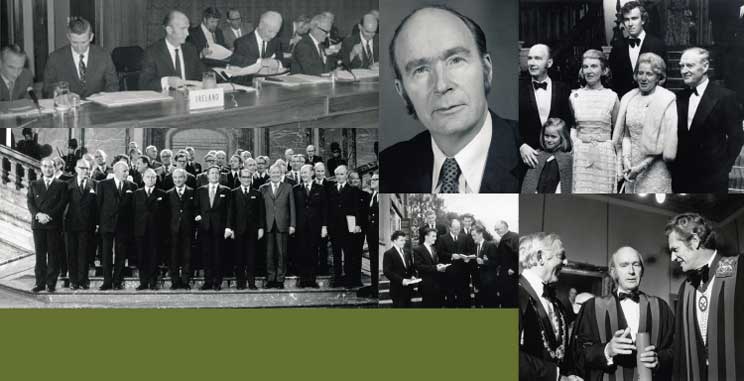 |
||||
In 1951 Hillery was selected by Fianna Fáil to become Eamon de Valera’s running mate in the General Election that year. He won a seat in the Dáil and when Fianna Fáil were returned to office after a period in opposition, Hillery served on the backbenches. |
In 1959, when Eamon de Valera retired as Taoiseach to become President of Ireland, his successor, Sean Lemass, chose Patrick Hillery to become Minister for Education. He took to the position with enthusiasm and was responsible for much innovative thinking in a Department that was close to the heart of Lemass’ strategy of industrial development, focussed on attracting inward investment. He was responsible for initiating many reforms that were to be introduced over the next decade, including the establishment of Comprehensive Schools and Regional Technical Colleges. Even after he left the Department, the policy of reforming education was continued by his successors. Hillery moved from Education to the Industry and Commerce portfolio in 1965, and became the first Minister of Labour in 1966. In 1969, just as The Troubles in Northern Ireland were beginning, he was promoted to Minister for External Affairs (later called Foreign Affairs) in Jack Lynch’s Fianna Fáil Government. The deteriorating situation in Northern Ireland did not dominate his tenure in the Department completely, however. In 1972, he successfully negotiated Irish membership of the European Economic Community (now the E.U.), which Ireland joined in 1973. A British assessment of Hillery from this period observed the following: Following Ireland’s membership of the E.E.C. in 1973, Hillery was appointed the country’s first European Commissioner in Brussels, becoming Vice President of the Commission of the European Communities with special responsibility for Social Affairs. Perhaps his most famous achievement as Commissioner was his successful introduction of legislation forcing all E.E.C. member states to give equal pay to women. During his Dáil career he received the following Honours: |
|||
 |
||||